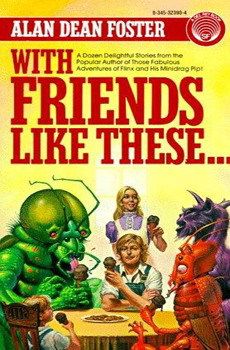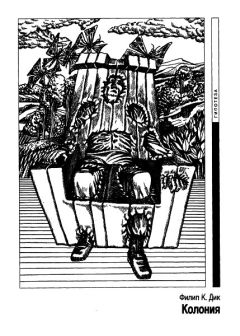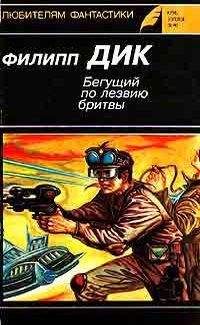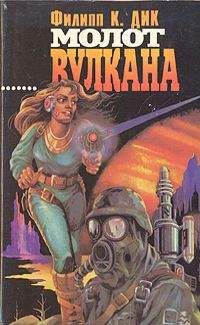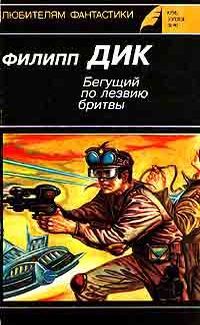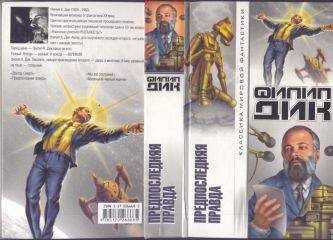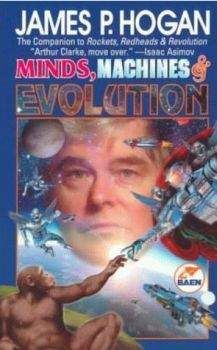Philip Dick - Foster, You’re Dead
Скачивание начинается... Если скачивание не началось автоматически, пожалуйста нажмите на эту ссылку.
Жалоба
Напишите нам, и мы в срочном порядке примем меры.
Описание книги "Foster, You’re Dead"
Описание и краткое содержание "Foster, You’re Dead" читать бесплатно онлайн.
Ruth paced back into the kitchen. “I heard they were going to turn out adaptors.”
“Adaptors! What do you mean?”
“So people won’t have to buy new shelters. There was a commercial on the vidscreen. They’re going to put some kind of metal grill on the market, as soon as the government approves it. They spread it over the ground and it intercepts the bore-pellets. It screens them, makes them explode on the surface, so they can’t burrow down to the shelter.”
‘'How much?”
“They didn’t say.”
Mike Foster sat crouched on the sofa, listening. He had heard the news at school. They were taking their test on berry-identification, examining encased samples of wild berries to distinguish the harmless ones from the toxic, when the bell had announced a general assembly. The principal read them the news about the bore-pellets and then gave a routine lecture on emergency treatment of a new variant of typhus, recently developed.
His parents were still arguing. “We’ll have to get one,” Ruth Foster said calmly. “Otherwise it won’t make any difference whether we’ve got a shelter or not. The bore- pellets were specifically designed to penetrate the surface and seek out warmth. As soon as the Russians have them in production ”
“П1 get one,” Bob Foster said. “I’ll get an anti-pellet grill and whatever else they have. I’ll buy everything they put on the market. I’ll never stop buying.”
“It’s not as bad as that.”
“You know, this game has one real advantage over selling people cars and TV sets. With something like this we have to buy. It isn’t a luxury, something big and flashy to impress the neighbors, something we could do without. If we don’t buy this we die. They always said the way to sell something was create anxiety in people. Create a sense of insecurity—tell them they smell bad or look funny. But this makes a joke out of deodorant and hair oil. You can’t escape this. К you don’t buy, they’ll kill you. The perfect sales-pitch. Buy or die—new slogan. Have a shiny new General Electronics H-bomb shelter in your back yard or be slaughtered.”
“Stop talking like that!” Ruth snapped.
Bob Foster threw himself down at the kitchen table. “All right. I give up. I’ll go along with it.”
“You’ll get one? I think they’ll be on the market by Christmas.”
“Oh, yes,” Foster said. “They’ll be out by Christmas.” There was a strange look on his face. “I’ll buy one of the damn things for Christmas, and so will everybody else.”
The GEC grill-screen adaptors were a sensation.
Mike Foster walked slowly along the crowd-packed December street, through the late-aftemoon twilight. Adaptors glittered in every store window. All shapes and sizes, for every kind of shelter. All prices, for every pocket- book. The crowds of people were gay and excited, typical Christmas crowds, shoving good-naturedly, loaded down with packages and heavy overcoats. The air was white with gusts of sweeping snow. Cars nosed cautiously along the jammed streets. Lights and neon displays, immense glowing store windows gleamed on all sides.
His own house was dark and silent. His parents weren’t home yet. Both of them were down at the store working; business had been bad and his mother was taking the place of one of the clerks. Mike held his hand up to the codekey, and the front door let him in. The automatic furnace had kept the house warm and pleasant. He removed his coat and put away his school books.
He didn’t stay in the house long. His heart pounding with excitement, he felt his way out the back door and started onto the back porch.
He forced himself to stop, turn around, and re-enter the house. It was better if he didn’t hurry things. He had worked out every moment of the process, from the first instant he saw the low hinge of the neck reared up hard and firm against the evening sky. He had made a fine art of it; there was no wasted motion. His procedure had been shaped, molded until it was a beautiful thing. The first overwhelming sense of presence as the neck of the shelter came around him. Then the blood-freezing rush of air as the descent-lift hurtled down all the way to the bottom.
And the grandeur of the shelter itself.
Every afternoon, as soon as he was home, he made his way down into it, below the surface, concealed and protected in its steel silence, as he had done since the first day. Now the chamber was full, not empty. Filled with endless cans of food, pillows, books, vidtapes, audio-tapes, prints on the walls, bright fabrics, textures and colors, even vases of flowers. The shelter was his place, where he crouched curled up, surrounded by everything he needed.
Delaying things as long as possible, he hurried back through the house and rummaged in the audio-tape file. He’d sit down in the shelter until dinner, listening to Wind in the Willows. His parents knew where to find him; he was always down there. Two hours of uninterrupted happiness, alone by himself in the shelter. And then when dinner was over he would hurry back down, to stay until time for bed. Sometimes late at night, when his parents were sound asleep, he got quietly up and made his way outside, to the shelter-neck, and down into its silent depths. To hide until morning.
He found the audio-tape and hurried through the house, out onto the back porch and into the yard. The sky was a bleak gray, shot with streamers of ugly black clouds. The lights of the town were coming on here and there. The yard was cold and hostile. He made bis way uncertainly down the steps—and froze.
A vast yawning cavity loomed. A gaping mouth, vacant and toothless, fixed open to the night sky. There was nothing else. The shelter was gone.
He stood for an endless time, the tape clutched in one hand, the other hand on the porch railing- Night came on; the dead hole dissolved in darkness. The whole world gradually collapsed into silence and abysmal gloom. Weak stars came out; lights in nearby houses came on fitfully, cold and faint. The boy saw nothing. He stood unmoving, his body rigid as stone, still facing die great pit where the shelter had been.
Then his father was standing beside him. “How long have you been here?” his father was saying. “How long, Mike? Answer me!”
With a violent effort Mike managed to drag himself back. “You’re home early,” he muttered.
“I left the store early on purpose. I wanted to be here when you—got home.”
“It’s gone.”
“Yes.” His father’s voice was cold, without emotion. “The shelter’s gone. I’m sorry, Mike. I called them and told them to take it back.”
“Why?”
“I couldn’t pay for it. Not this Christmas, with those grills everyone’s getting. I can’t compete with them.” He broke off and then continued wretchedly, “They were damn decent. They gave me back half the money I put in.” His voice twisted ironically. “I knew if I made a deal with them before Christmas I’d come out better. They can resell it to somebody else.”
Mike said nothing.
“Try to understand,” his father went on harshly. “I had to throw what capital I could scrape together into the store. I have to keep it running. It was either give up the
shelter or the store. And if I gave up the store ”
“Then we wouldn’t have anything.”
His father caught hold of his arm. “Then we’d have to give up the shelter, too.” His thin, strong fingers diig in spasmodically. “You’re growing up—you’re old enough to understand. We’ll get one later, maybe not the biggest, the most expensive, but something. It was a mistake, Mike. I couldn’t swing it, not with the god-damn adaptor-things to buck. I’m keeping up the NAT payments, though. And your school tab. I’m keeping that going. This isn’t a matter of principle,” he finished desperately. “I can’t help it. Do you understand, Mike? I had to do it."
Mike pulled away.
“Where are you going?” His father hurried after him. “Come back here!” He grabbed for his son frantically, but in the gloom he stumbled and fell. Stars blinded him as his head smashed into the edge of the house; he pulled himself up painfully and groped for some support.
When he could see again, the yard was empty. His son was gone.
“Mike!” he yelled. “Where are you?”
There was no answer. The night wind blew clouds of snow around him, a thin bitter gust of chilled air. Wind and darkness, nothing else.
Bill O’Neill wearily examined the clock on the wall. It was nine-thirty: he could finally close the doors and lock up the big dazzling store. Push the milling, murmuring throngs of people outside and on their way home.
“Thank God,” he breathed, as he held the door open for the last old lady, loaded down with packages and presents. He threw the code-bolt in place and pulled down the shade. “What a mob. I never saw so many people.”
“All done,” A1 Conners said, from the cash register. “I’ll count the money—you go around and check everything. Make sure we got all of them out.”
O’Neill pushed his blond hair back and loosened his tie. He lit a cigarette gratefully, then moved around the store, checking light switches, turning off the massive GEC displays and appliances. Finally he approached the huge bomb shelter that took up the center of the floor.
He climbed the ladder to the neck and stepped onto the lift. The lift dropped with a whoosh and a second later he stepped out in the cave-like interior of the shelter.
In one comer Mike Foster sat curled up in a tight heap, his knees drawn up against his chin, his skinny arms wrapped around his ankles. His face was pushed down; only his ragged brown hair showed. He didn’t move as the salesman approached him, astounded.
“Jesus!” O’Neill exclaimed. “It’s that kid.”
Mike said nothing. He hugged his legs tighter and buried his head as far down as possible.
“What the hell are you doing down here?” O’Neill demanded, surprised and angry. His outrage increased. “I thought your folks got one of these.” Then he remembered. “That’s right. We had to repossess it.”
Al Conners appeared from the descent-lift. “What’s
holding you up? Let’s get out of here and ” He saw
Mike and broke off. “What’s he doing down here? Get him out and let’s go.”
“Come on, kid,” O’Neill said gently. “Time to go home.” Mike didn’t move.
The two men looked at each other. “I guess we’re going to have to drag him out,” Conners said grimly. He took off his coat and tossed it over a decontamination-fixture. “Come on. Let’s get it over with.”
It took both of them. The boy fought desperately, without sound, clawing and struggling and tearing at them with his fingernails, kicking them, slashing at them, biting them when they grabbed him. They half-dragged, half-carried him to the descent-lift and pushed him into it long enough to activate the mechanism. O’Neill rode up with him; Conners came immediately after. Grimly, efficiently, they bundled the boy to the front door, threw him out, and locked the bolts after him.
“Wow,” Conners gasped, sinking down against the counter. His sleeve was tom and his cheek was cut and gashed. His glasses hung from one ear; his hair was rumpled and he was exhausted. “Think we ought to call the cops? There’s something wrong with that kid.” O’Neill stood by the door, panting for breath and gazing out into the darkness. He could see the boy sitting on the pavement. “He’s still out there,” he muttered. People pushed by the boy on both sides. Finally one of them
stopped and got him up. The boy struggled away, and then disappeared into the darkness. The larger figure picked up its packages, hesitated a moment, and then went on. O’Neill turned away. “What a hell of a thing.” He wiped his face with his handkerchief. “He sure put up a fight.” “What was the matter with him? He never said anything, not a god-damn word.”
“Christmas is a hell of a time to repossess something,” O’Neill said. He reached shakily for his coat. “It’s too bad. I wish they could have kept it.”
Conners shrugged. “No tickie, no laundly.”
“Why the hell can’t we give them a deal? Maybe ”
O’Neill struggled to get the word out. “Maybe sell the shelter wholesale, to people like that.”
Conners glared at him angrily. “Wholesale? And then everybody wants it wholesale. It wouldn’t be fair—and how long would we stay in business? How long would GEC last that way?”
“I guess not very long,” O’Neill admitted moodily.
“Use your head.” Conners laughed sharply. “What you need is a good stiff drink. Come on in the back closet— I’ve got a fifth of Haig and Haig in a drawer back there. A little something to warm you up, before you go home. That’s what you need.”
Mike Foster wandered aimlessly along the dark street, among the crowds of shoppers hurrying home. He saw nothing; people pushed against him but he was unaware of them. Lights, laughing people, the honking of car horns, the clang of signals. He was blank, his mind empty and dead. He walked automatically, without consciousness or feeling.
To his right a garish neon sign winked and glowed in the deepening night shadows. A huge sign, bright and colorful.
PEACE ON EARTH GOOD WILL TO MEN PUBLIC SHELTER ADMISSION 50c
Подписывайтесь на наши страницы в социальных сетях.
Будьте в курсе последних книжных новинок, комментируйте, обсуждайте. Мы ждём Вас!
Похожие книги на "Foster, You’re Dead"
Книги похожие на "Foster, You’re Dead" читать онлайн или скачать бесплатно полные версии.
Мы рекомендуем Вам зарегистрироваться либо войти на сайт под своим именем.
Отзывы о "Philip Dick - Foster, You’re Dead"
Отзывы читателей о книге "Foster, You’re Dead", комментарии и мнения людей о произведении.







